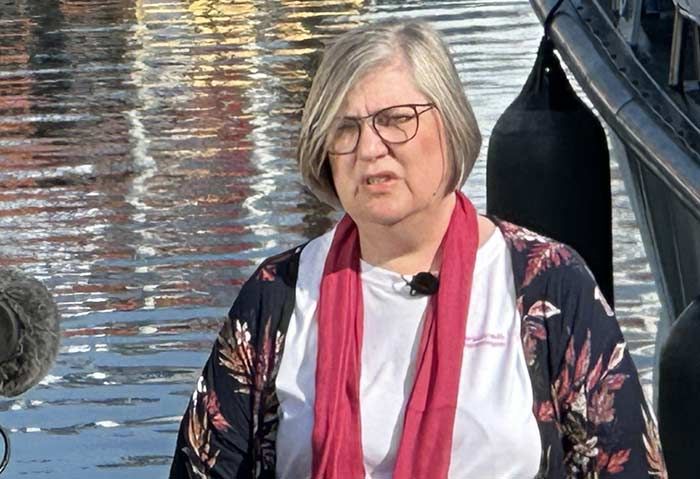
Breast cancer association: Danish women die earlier because they do not get access to new medicines
This year, the Breast Cancer Association in Denmark focuses on the fact that Danish women with breast cancer do not have access to several of the new EMA-approved drugs that can prolong life. The chairman of the Breast Cancer Association, Anja Skjoldborg Hansen, talks here about the association's areas of action in 2023.
Denmark ranks third in the OECD when it comes to expenditure on hospital medicine in relation to GDP. This means, among other things, that there is no life-extending medication for women with incurable breast cancer and that half of all treatments are not offered to Danish breast cancer patients. That is why the Breast Cancer Association has launched the givostid.dk campaign, which aims to increase the focus on the extra lifespan cancer drugs can give.
"In Denmark, a breast cancer patient cannot get the same medicine as women can in many other countries, for example Sweden. We cannot get treatments that are approved by the EMA in Denmark, partly because the Medical Council does not want to spend the money on it, but also because they often believe that some of the approvals have been made with too little evidence, and on too healthy patients. So in Denmark the evidence is picked apart. The result is that we don't get the medicine, which could give the woman more time to live and more hope," says Anja Skjoldborg Hansen and talks about the new campaign.
"With givostid.dk, we want to focus on the extra lifespan that cancer drugs can provide for the benefit of the cancer patient and his family. In short films, relatives tell that medicine can prolong the life of a mother, a daughter, a sister or a wife. The campaign's target audience is primarily the Danish politicians, and in addition to the short film clips, a policy paper and a chronicle in Berlingske have also been prepared," she says.
Longer life is an investment
The Danish government otherwise presented a large new healthcare package in June this year of five billion kroner, but the Breast Cancer Association does not believe that enough money has been set aside for medical expenses.
"The government has understood the message that cancer patients must be operated on quickly. But for those who cannot be operated on, or where the cancer has returned, medicine is the only treatment option. When breast cancer has spread to other parts of the body, it requires lifelong treatment to keep the cancer at bay. But the medicine is expensive, and there are more and more treatments that are not offered in Denmark. It is as if politicians have forgotten what medicine means to patients with incurable cancer. They must see the medicine as an investment, because it is life-prolonging and not as an expense," says Anja Skjoldborg Hansen, who is worried that Denmark will end up in a downward spiral, where we lag behind the countries we normally compare ourselves to.
"We are not interesting for research because we cannot be used as a basis for comparison. We risk becoming a second country in cancer treatment," says Anja Skjoldborg Hansen, who also wants attention to ethics and quality of life.
"Quality of life is also included in the Medical Council's assessments, and this means that you look at the side effect profile. Are the side effects worth three to four months of longer life? Here you have to trust the doctor and the patient together can assess it. But the doctor still cannot provide the best treatment, and there should be more openness about that," says Anja Skjoldborg Hansen and elaborates:
"Doctors have the right to prescribe and can apply for the individual patient to have a specific treatment. But then it is the hospital itself that has to pay for it. You may also be able to find a cancer doctor in private practice who would like to prescribe a treatment, but then you have to pay for it yourself. Or move to Sweden, where you can get the treatment,” she says.